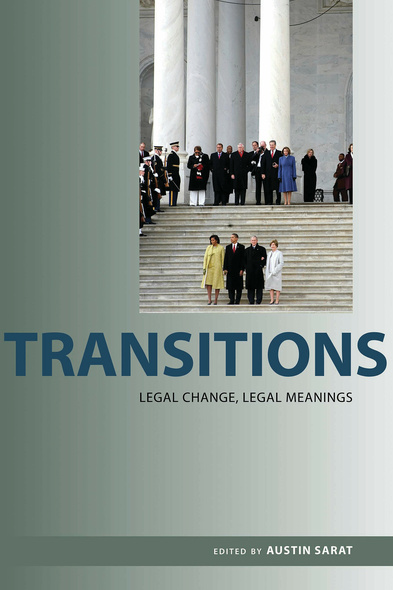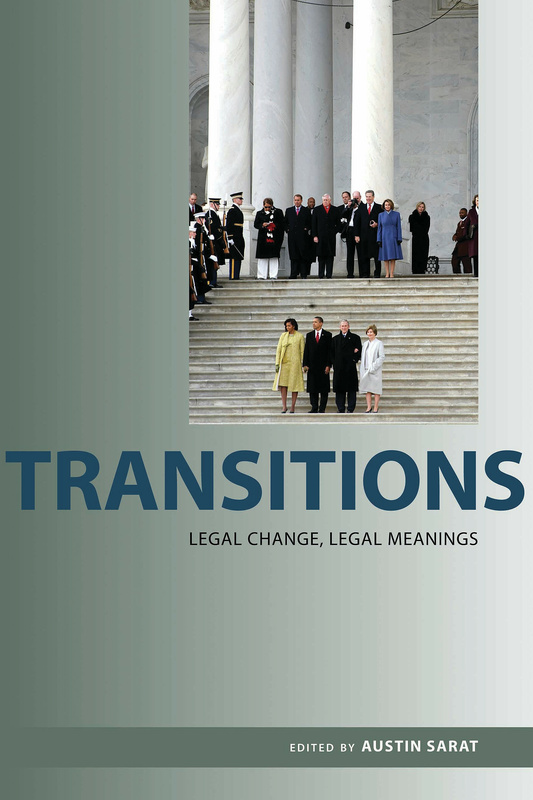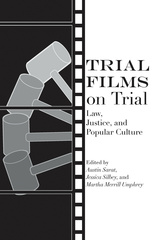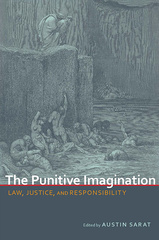Transitions
Legal Change, Legal Meanings
Edited by Austin Sarat; Introduction by Austin Sarat
University of Alabama Press
Transitions: Legal Change, Legal Meanings illustrates the various intersections, crises, and shifts that continually occur within the law, and how these moments of change interact with and comment on contemporary society.
Together the essays in this volume investigate the transformation of US law during moments of political change and explore what we can learn about law by examining its role and its use in times of transition. Whether by an abrupt shift in regime or an orderly progression from one government to the next, political change often calls into question the stability and versatility of the law, making it appear temporarily absent or in suspension. What challenges to the law arise at these times? To what extent do transitional periods foster ingenuity and resourcefulness, and how might they precipitate crises in legal authority? What do moments of legal change mean for law itself and how legal institutions bring about and respond to times of transition in legal arrangements? Transitions begins the scholarly exploration of these questions that have largely been neglected.
Contributors
Akhil Reed Amar / William L. Andreen /
Jack M. Beermann / Heather Elliott / Joshua
Alexander Geltzer / David Gray / Paul
Horwitz / Daniel H. Joyner / Nina
Mendelson / Meredith Render / Austin
Sarat / Ruti Teitel / Lindsey Ohlsson Worth
Akhil Reed Amar / William L. Andreen /
Jack M. Beermann / Heather Elliott / Joshua
Alexander Geltzer / David Gray / Paul
Horwitz / Daniel H. Joyner / Nina
Mendelson / Meredith Render / Austin
Sarat / Ruti Teitel / Lindsey Ohlsson Worth
Austin Sarat is the William Nelson Cromwell Professor of Jurisprudence and Political Science at Amherst College and the Justice Hugo L. Black Visiting Senior Faculty Scholar at The University of Alabama School of Law. He is the author or editor of more than seventy books on law and society, including Imagining Legality: Where Law Meets Popular Culture, and he is the editor of the journals Law, Culture and the Humanities and Studies in Law, Politics, and Society. He also edits the book series Cultural Lives of Law at Stanford University Press.
Acknowledgments
What Transitions Mean to and for Law: An Introduction by Austin Sarat
1. Midnight Deregulation by Jack M. Beermann
Commentary: Judicial Review of Midnight Deregulation by Heather Elliott
2. Midnight Rulemaking and Congress by Nina Mendelson
Commentary: Is There a Silver Lining to Midnight Mischief? by William L. Andreen
3. Reconstructing the Republic: The Great Transition of the 1860s
Akhil Reed Amar, Lindsey Ohlsson Worth, and Joshua Alexander Geltzer
Commentary: Ordinary and Extraordinary Transitions by Paul Horwitz
4. Transitional Disclosures: What Transitional Justice Reveals about "Law" by David Gray
Commentary: Power, Paradigms, and Legal Prescriptions: "The Rule of Law" as a Necessary but Not Sufficient Condition for Transitional Justice by Meredith Render
5. Global Transitions, New Perspectives on Legality, and Judicial Review by Ruti Teitel
Commentary on Chapter 5 by Daniel H. Joyner
Contributors
Index








